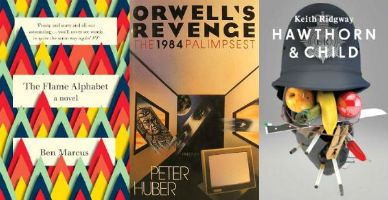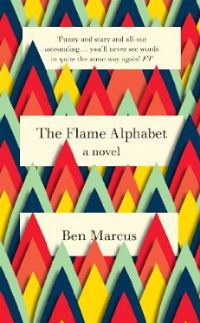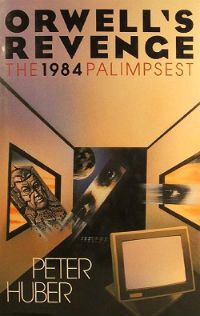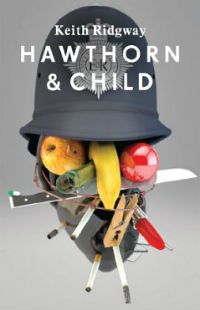“Choke!”, “Gasp!” Not A Podcast! BOOKS! Read 'Em On The Beach, Read 'Em On The Pot!
/Despite the fact that I am sat in the middle of a thunderstorm I understand Summer, as it is commonly understood, is still on. I also, understand that the Podcast Magic Gentle Jeff Lester and Graeme McMillion$ provide is delayed due to things. Maybe even rain. So, here are some more potential beach reads for you to stain with sugary drinks, crisp salt, tanning lotion and tears of rejection. But who are the Arthur Haileys, the Wilbur Smiths of this, the sparkliest generation? Probably not this 'orrible lot. This is just a bunch of books an old man read. I wasn't even on a beach. My whole life is a lie. If I tried hard I could probably find it within myself to care. Anyway, this...

THE FLAME ALPHABET By Ben Marcus Granta Hardcover (2012),£16.99 Paperback (2013), £8.99 Kindle £4.63
It’s a nice cover,right? I know we shouldn’t do that, shouldn’t judge a book by its cover (so why do they have them?) but judging a cover by itself is permissible, right? It’s such a nice cover that My Lady Of Infinite Patience plucked the book from my feeble grip and started complimenting it on its general loveliness. Then she asked me what the book was about, because usually I (so the popular perception chez K(UK) has it) read only dour, depressing, mentally exhausting exercises in nastiness which curdle my world view for at least as long as it takes my unerring internal radar to locate another such book. Confounding no one’s expectations then, I was able to tell her the book concerned a universal plague whereby language becomes toxic and the source is children. Laughter, ahoy! There are a lot of fantastic tricks played with language here but the biggest trick is that it enables the wholly insane premise and developments to, after a brief period of immersion, appear sinisterly plausible. The Flame Alphabet starts out as a coffee dregs dark satire of how parents with teenagers feel like they are victims of some senseless and fatally draining force for which there is no defence. Then it swings out into a post-apocalyptic narrative which rivals J G Ballard for its presentation of insanity accepted as sanity. Finally the book’s scope shrinks backwards and inwards and you realise that it was about love all along. I don’t want to spoil this book any more than I have; it is terrifying in its terrible beauty as are the talents of the author. This is a magnificent fucker of a book and if you are a parent it will fuck you up, and you will thank it for it. I can’t deny it was VERY GOOD!
ORWELL'S REVENGE: THE "1984" PALIMPSET By Peter Huber Simon and Schuster Hardcover (1995),£OOP (OOP = Out Of Print)
This is a truly bizarre book; unique maybe? Because what Peter Huber did here was write a refutation of Orwell’s Nineteen Eighty-Four using Orwell’s own words against him. Literally. Huber loaded most of Orwell’s writings into his PC and used (with mid-90’s tech!) only Orwell’s language, phrases, similes etc to write a sequel to Nineteen Eighty-Four. A sequel which seeks to unwrite its predecessor. Because Huber’s contention is that Orwell’s book failed to predict the future and since he, Huber is living in Orwell’s future he can go back and correct the book. And so we read about Blair (Eric?) who discovers Winston Smith’s Diary and eventually faces O’Brien revealing to him, and us, the fatal flaw in Big Brother’s society. A flaw, it turns out, which was there all the time, in plain sight, but Orwell missed it; the fact that I have written this and you are able to read it is a clue. But it isn’t so much the what but the how. And interleaved with the fiction is a non-fiction analysis of Orwell, his works, Nineteen Eighty-Four and how and why the central conceit was flawed from the start.
Initially I thought Huber was just being picky but thankfully what is of greater interest to Huber is why Orwell missed the things he did. No one can deny that Orwell was sharp as a tack, yet with Nineteen Eighty-Four he’s in error because of two convictions so ingrained in his otherwise elastic mind that they veer on the obsessional. Huber isn’t unsympathetic, despite his final chapter illustrating that the evidence of Orwell’s faulty thinking was all around him in his own time. He isn't unsympathetic because he can see where Orwell’s biases originated and how the ideas became fixed. And he can see that because it is in practically everything Orwell wrote. And he can do that because he is actually using practically everything Orwell wrote. The revelation of these two mistaken convictions is enlightening and not a little surprising and wittily illustrated in example revolving around gramophones and a Ministry for washing up. There’s a slight stumble at the end with a final chapter so dryly academic I swear I heard a dying fly spinning uselessly on the windowsill of the classroom of my mind. Perhaps that’s because Huber has left Orwell’s words behind by that point making it plain that if there were things wrong with Orwell’s wiring there was nothing wrong with his writing. Orwell’s Revenge is an engaging and entertaining mash up of fiction, meta-textuality, economics, psychology and literary innovation. You’ll probably argue with it while you read it but a little bit of cerebral stimulation is always GOOD!
HAWTHORNE AND CHILD By Keith Ridgway Granta Hardcover (2012),£16.99 Paperback (2013), £7.99 Kindle £4.12
I have no real inkling why I picked this up. Probably the cover (don’t judge me!, it pleads. But we do. We always do. Good cover.) A précis of the premise is just the kind of trite shite I’d chuck across the room at a Dan Brown fan. Two mismatched cops (it’s in the UK so ‘coppers’ or ‘bobbies’ we’re talking about here)! One’s black! One’s white! One’s gay! One’s straight! One’s Troubled! One’s Not really all that fussed to be honest! Together they fight crime! Sounds like one of those brick thick things with the wide line spacing and broad margins about them there cops with their troubles, with their burdens. Those burdened, troubled coppers that despite the alcoholism, debts, broken marriages, estranged children, dodgy tickers, gammy ears, undescended testicles, in-growing toe nails and burdens, those ever present burdens, manage to catch the cleverest criminal minds of all time. Again and again. Annually at least. But not at no cost, because, burdens. More burdens for the next book. Burdens. But…So, yeah, anyway, Hawthorn and Child! together they fight crime! Except they don’t. Or they do, but the book isn’t interested in that. Yes, there’s a crime but that’s soon left behind and the book wanders off looking in on minor characters, veering into tangential magical realism, slapping you with a short sharp hostage situation, drawing pornographic parallels between kettling and salty bath house frolics, wherever it wants basically. Which is alright by me. Please don't worry about the homosexual intercourse depicted within as none of them are married so no bigots should be offended in the reading of this book. Any offence whatsoever should be dulled by the evidence that Ridgway is a sensationally fine writer. You know what language is to him? No, me neither but I know what it isn’t. A burden. Given the nature of its structure some may question whether Hawthorn and Child is a novel or a suite of short stories linked by themes and recurring characters, or maybe both. Sure as eggs is eggs, as soon as people start discussing what a novel is then it’s just a matter of time before some smart arse brings up that (anecdotally at least) Hemingway’s shortest novel ever “For sale: Baby shoes. Never worn.”, and then steps back radiating an almost unholy satisfaction. Fine, now go and charge someone £16.99 for that and see how you get on, buggerlugs. Hawthorn and Child might be a novel or it might not but it is certainly worth the £16.99 and more besides. Because it is VERY GOOD! I think that’s what matters most, but then I’m a simple man. Without burdens.
Next time - COMICS!!!














